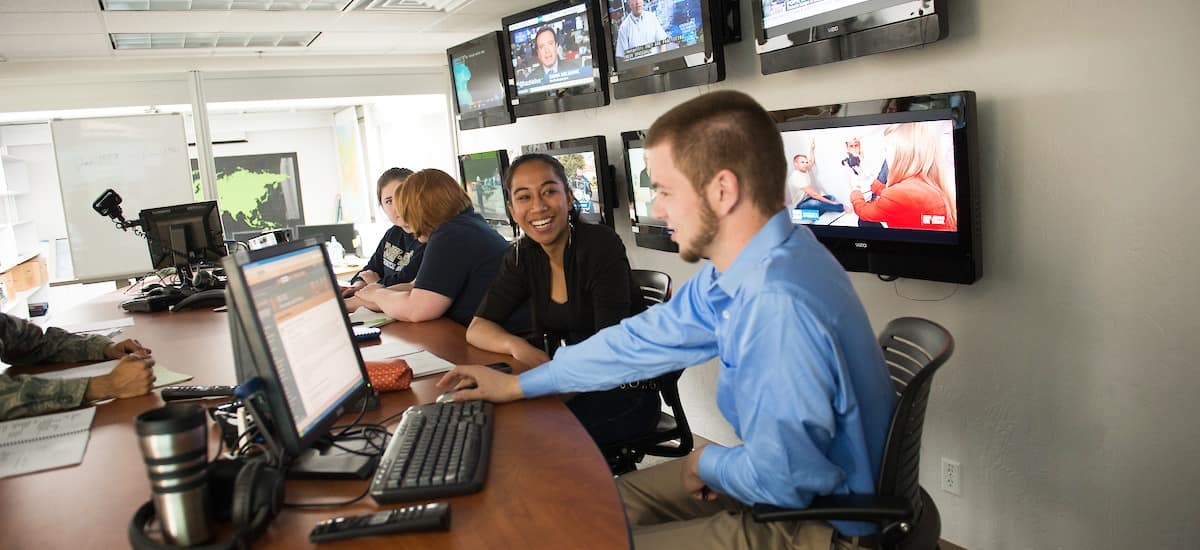
Unlike many other universities, professors — not graduate students — teach all the general education, business, intelligence, computing, and the cyber security courses. CIS course sizes are relatively small (most have less than 24 students) and most are based on hands-on exercises so students have an active role in learning. There is also plenty of tutoring available in the Hazy Library tutoring center from upperclassmen. Professors also have at least 7.5-10 hours per week of office hours devoted solely to helping students with assignments or other problems. Advising is taken very seriously at Embry-Riddle. Academic advisor meets with students regularly to ensure they are on track to graduate in the expected timeframes. The department chair and faculty typically contact their advisees multiple times each semester to make sure they are doing well in their classes and are happy with their education as it relates to their future goals.
The BS CIS program is interdisciplinary in nature and the curriculum we offer is in accordance with national-level cyber education guidelines. In addition, employers want graduates with multi-disciplinary skills. They allow you to reason and defend your arguments with a sufficient level of technical rigor as well as interact meaningfully with a team of people with different backgrounds such as engineering, math, or pure sciences.
Computers that need to secured are becoming more and more physically capable, such as computers connected to cars and aircraft. These are precursors of a digital future where Cyber-Physical Systems are as pervasive as smart phones are today. Hence, understanding physics is a core knowledge unit for CIS students. In addition, physics advances have been central to cyber security, some examples including: quantum resistant cryptography that NSA and NIST recognize as an urgent need to protect systems vulnerable to quantum computing; use of statistical mechanics for modeling malware propagation and building secure systems; and, cyberattacks based in electromagnetic effects such as electromagnetic pulses that damage enemy cyber systems.
But, you may wonder where are all those partial derivatives and gradients from Math courses going to come handy? What if your future job is to secure the Mars lander or some other autonomous system here on Earth, and one task is for you to establish how to secure GPS by analyzing the system’s trajectory using partial derivatives and gradients? What if you were to design an algorithm to solve a security problem and need to analyze it? What if you need to analyze a computer image for threats? Linear algebra, calculus, and discrete math, in general, play a foundational role in these tasks.
Machine learning, and data science, in general—a growing skillset for cyber security jobs—relies on the heavy use of statistics, which in turns relies on calculus and probability. Threat intelligence data sets are on the rise, hence the necessity for new analysis tools as well as analysts who know probability/statistics are on the rise too! Business and accounting skills are critical for your daily professional life—from developing business cases for your security ideas to managing security projects to investigating cybercrimes.
Contact Us
Prescott, AZ 86301
